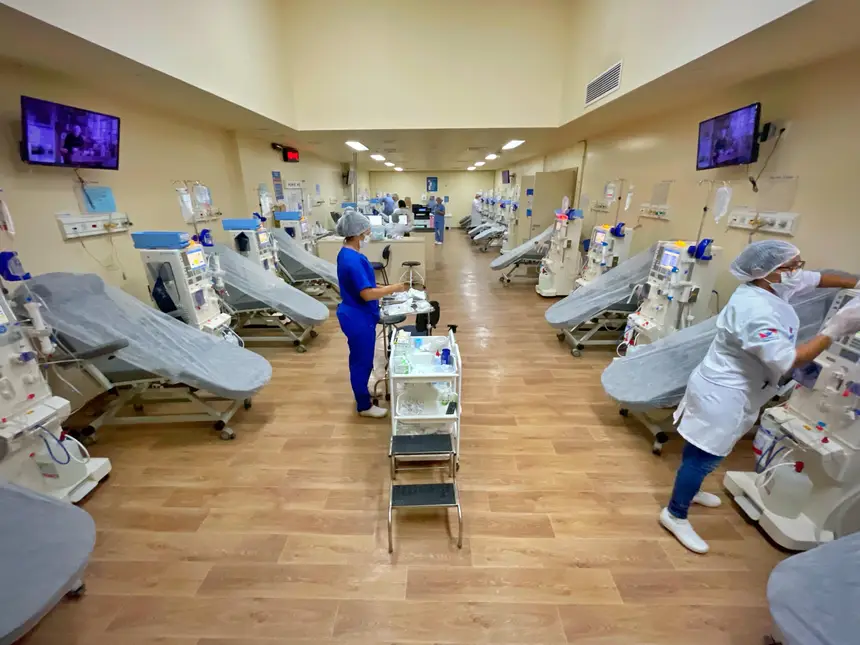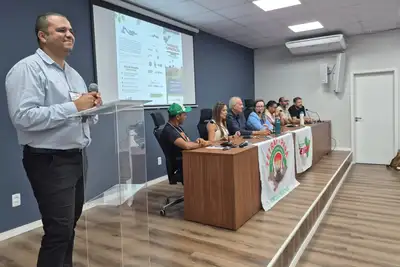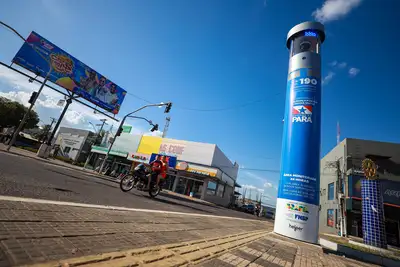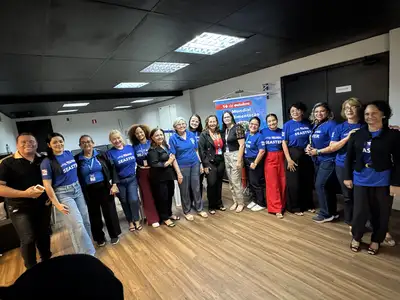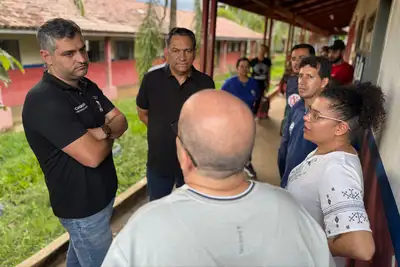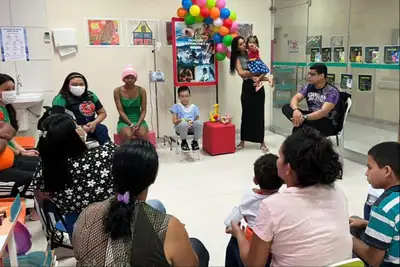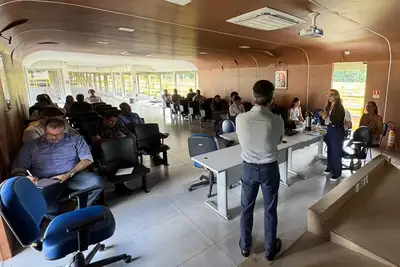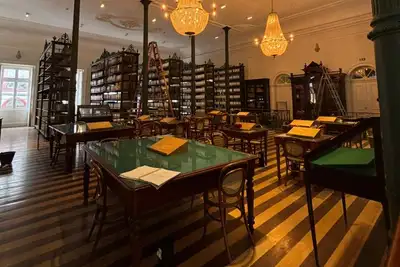Government investments in Pará expand hemodialysis services at Abelardo Santos Hospital
The creation of new slots for treatment strengthens the commitment to the care of chronic kidney patients in the unit, which is a reference in serving women, children, and indigenous peoples
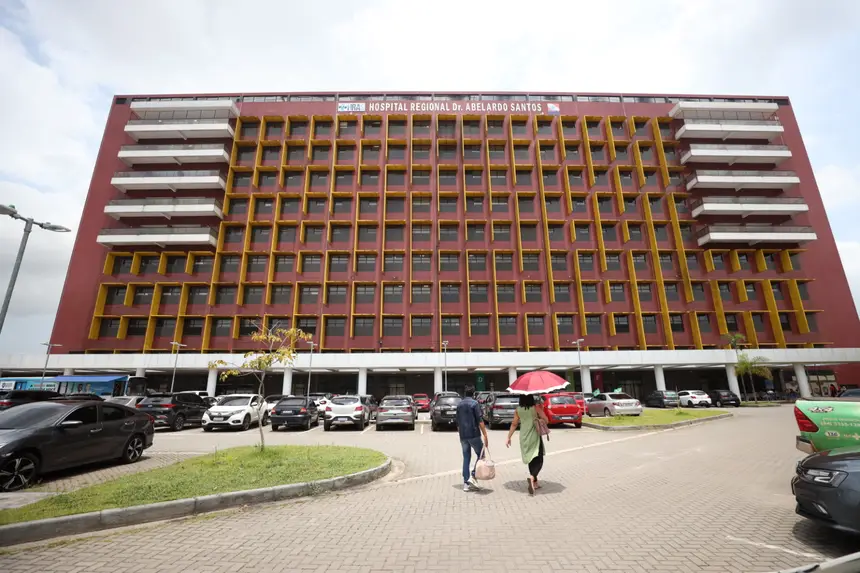
The Dr. Abelardo Santos Regional Hospital (HRAS), in Belém, has expanded its hemodialysis service capacity thanks to investments from the government of Pará, through the State Department of Public Health (Sespa). The unit, which is already a reference in serving women, children, and indigenous peoples, will offer a fourth shift of hemodialysis sessions starting in January 2024. This initiative reinforces the State government's commitment to ensuring humane care and access to high-complexity services for the population.
With this expansion, the hospital increased the number of slots for chronic kidney patients from 120 to 160, allowing more people to receive treatment. Between January and August 2023 and the same period in 2025, HRAS recorded a growth of 29.25% in the number of sessions performed, from 12,587 to 16,269 procedures.
“With the new shift, we had a positive impact, allowing more people to access this treatment and achieve a better quality of life. The government's investments strengthen not only the public health network of Pará but also the population's trust in the Unified Health System as a whole, which is a huge gain for us,” said Sespa head, Ivete Vaz.
Access to treatments in the hospital and at home
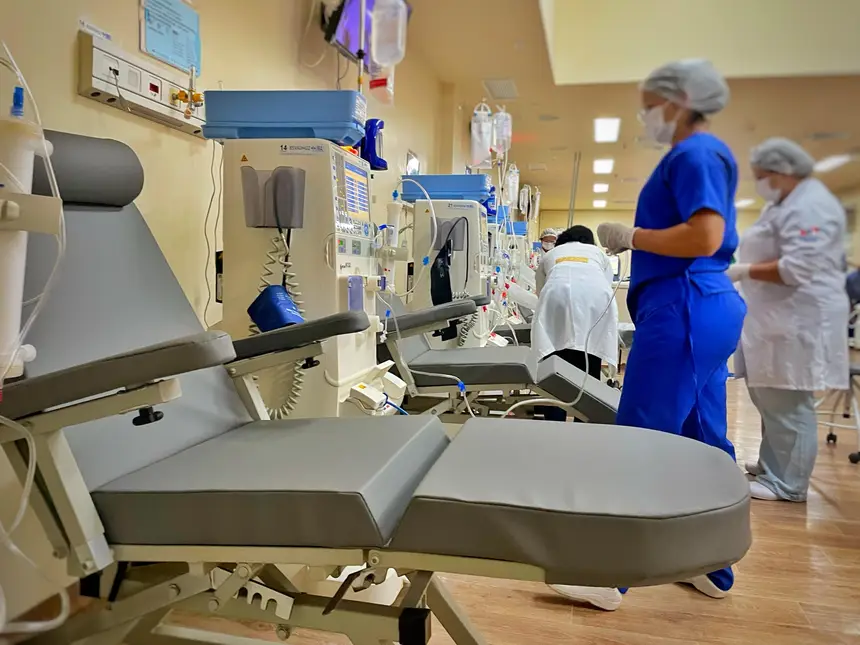
Each kidney patient, like retired Edilson Chagas, 54 years old, needs to attend HRAS at least three times a week. Each hemodialysis session lasts, on average, four hours. “It’s a treatment that isn’t easy, but there are ways to make it more manageable, starting with the team. The ‘Abelardo Santos’ deserves congratulations for their work,” says Edilson.
Raimundo Nonato, 67 years old, has been undergoing hemodialysis for 13 years and knows the challenges of the treatment well. “I know that the number of people who need this service is large, so expanding and improving the services is essential for more people to have access. Thank God, I can count on the hospital, and I hope that others in need can also have this access,” he stated.
The hospital also offers peritoneal dialysis, which allows patients to undergo treatment at home, avoiding frequent trips to the health unit and providing greater flexibility in their routine. This procedure uses the peritoneum - the membrane that lines the abdomen - as a filter to remove toxins from the blood, simulating kidney function in a less aggressive way to the body.
Located in Icoaraci, a district of Belém, the Abelardo Santos Hospital is a reference for these two types of treatment. The unit has a space that serves patients during the mentioned shifts and offers treatment in the Intensive Care Unit (ICU). In total, 22 machines and a complete team of doctors and multidisciplinary professionals ensure support for patients.
Improvements enhance patient care
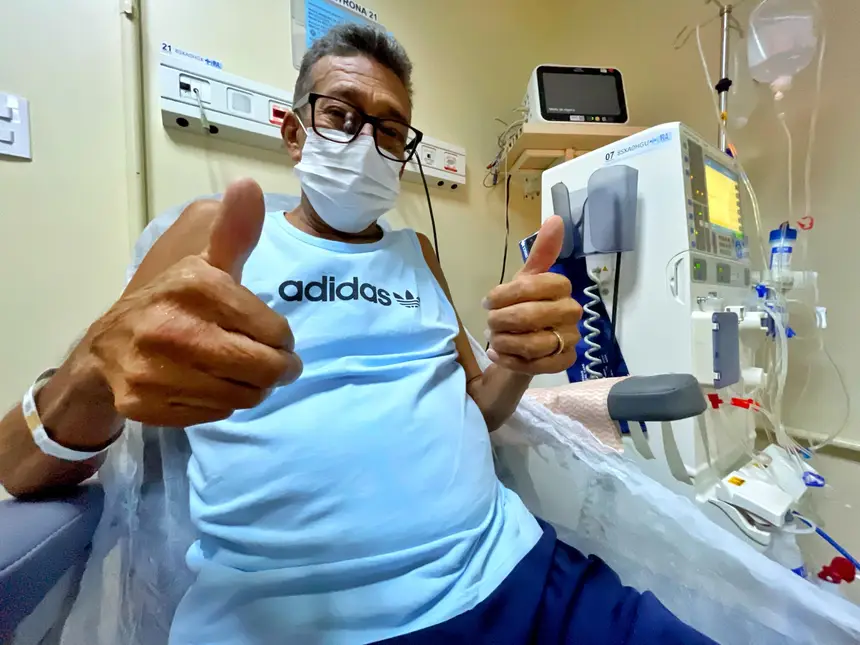
In addition to the increase in the number of slots in the last year, the Renal Replacement Therapy Service (STRS) recently received 22 new reclining chairs. These pieces of equipment are part of the ongoing investments by the government of Pará, committed to providing more comfort and safety to users during hemodialysis.
Before being delivered to patients, all chairs underwent tests for durability and quality, as well as a rigorous cleaning process. “Our work is always to think about the comfort and humanization of the patient, whether for those who are hospitalized or for those who come to the unit for simple procedures,” stated the general director of HRAS, Aline Oliveira.
The Abelardo Santos Hospital is managed by the Social Institute Mais Saúde (ISMS), in partnership with the State Department of Public Health. “This collaboration puts HRAS in the spotlight in the public health scenario. These are strategies that prioritize the patient, promoting constant improvements in the services offered to the population and valuing what we have most important: life,” concludes Aline.



